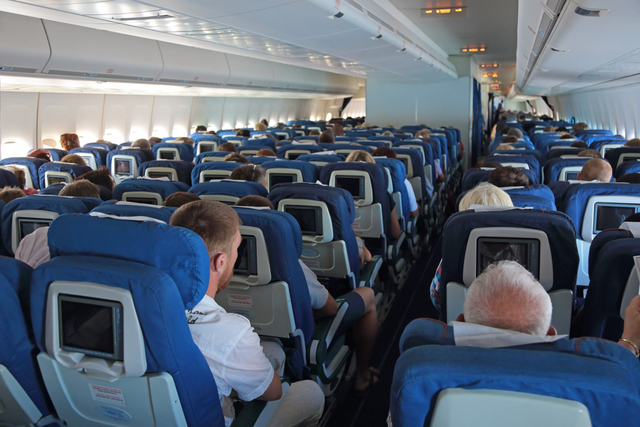7 expert tips for getting the best deal on your next flight
DETROIT — “People think I’m a spy,” Lawrence Sherman joked.
That may be an easy explanation for why he flies 300,000 miles per year. And it is more amusing to the former standup comic than the truth: Sherman traverses the globe as an inspirational speaker and trainer at medical conferences.
Sherman, a senior vice president at Zurich-based medical education firm Topec Global, uses a corporate travel agent for bookings. But he still researches the best deals and experiences because at 35,000 feet in the air, he does not want to be crunched in his seat.
Part of scoring that perfect ticket is timing: CheapAir.com said last week that 54 days prior to takeoff is the best time to buy a domestic U.S. flight. Sherman and other frequent fliers have seven more tips to make the skies a bit friendlier.
1. It pays to be loyal
Even if you are not a jet-setter, frequent flier miles add up. And the more they do, the more leeway airlines have to assist you. By joining the rewards program of the carrier that serves your most frequent destinations, you can avoid bag hassles or score priority rebooking when flights are canceled.
“Be loyal to an airline that has the most non-stop direct flights from where you live or has the most nonstop flights to a hub close to you,” said Peter Shankman, a New York City-based entrepreneur, angel investor and author who flies nearly as much as Sherman.
By always flying United Airlines, Shankman knows he can book the last flight of the night, which is usually the cheapest, but still get on an earlier flight without paying extra if seats are available. That is one of the perks that Shankman gets for his top status within United’s frequent flyer program.
2. Check travel and airline websites
Compare flights on fare-aggregator websites, such as Expedia , Kayak and Travelocity. Then visit airline websites to check for better deals.
For a recent flight, all of Sherman’s choices were equally priced on the aggregator sites, so he went to his preferred airline’s website to see if he could get a better deal.
“Emirates is awesomeness,” he said. “So I went on their site and got an amazing price for a great experience.”
3. Understand the different fare classes
Fare classes come with varying restrictions. Paying an extra $20, for example, on economy could give you flexibility to make changes and reserve a seat.
It could also mean better seats for a slightly higher fare. “Often you can’t upgrade on those economy tickets,” Shankman noted. “So sometimes it’s worth paying more for the next highest fare class so you can upgrade.”
4. Be flexible with travel dates
Pricing varies day-to-day for international flights, but that is also true for domestic flights if you are not competing with business travelers.
“Mid-week buying is a great idea,” said Abby Bassett, founder of Austin-based Cntrl Media, a media content company that specializes in auto and real estate news. “I’ve found ticket prices tend to take a dip on Tuesday, especially Tuesday evenings.”
5. Be willing to connect or take an extra jaunt
For Claire Nelson, using connections or adding destinations can lower costs.
“Sometimes a multi-city journey is comparable to a single-city flight with transfers,” said Nelson, who has been traveling between New Orleans, Detroit and Philadelphia to launch Urban Consulate, a nonprofit network of venues for local communities to discuss urban issues.
“And then I can sneak in a hug and hello with an old friend in-between.”
6. Go where the insiders go for help
For special advice and insight, Shankman and Sherman turn to FlyerTalk.com and SeatGuru.com, forums for expert travelers. Positive reviews on FlyerTalk helped Sherman decide on a flight on a startup airline between Doha, Qatar, and Dubai, United Arab Emirates.
If Shankman is on an airline or plane type he has not previously flown, his checks out SeatGuru. “Sometimes they say, ‘Boy this seat looks good, but it’s right by the galley, so if you’re trying to sleep that won’t work,’” he explained.
7. Consider a travel agent
The number of people using travel agents jumped 50 percent between 2013 and 2014, according to the American Society of Travel Agents.
“At a certain price point, having a travel agent becomes insurance in case anything goes wrong,” said Erina Pindar, managing director of SmartFlyer, a member of luxury travel network Virtuoso. “When you are a planning a trip at the low end for us - a trip for two is $15,000 - it is still a lot of money. That’s not something I myself would do on my own.”






















